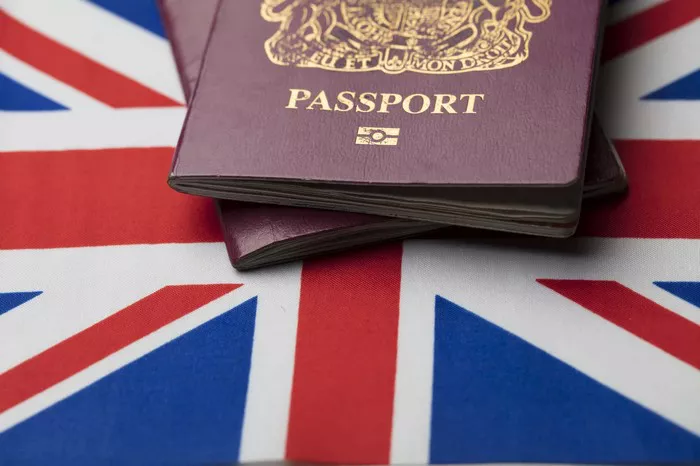In the realm of immigration to the United Kingdom, the Indefinite Leave to Remain (ILR) visa stands as a pivotal milestone for many individuals seeking to settle in the country for the long term. Offering a pathway to permanent residency, the ILR visa grants individuals the right to live and work in the UK without any immigration restrictions. In this comprehensive guide, we delve into the intricacies of the ILR visa, exploring its eligibility criteria, application process, benefits, and implications.
What is the ILR Visa?
Indefinite Leave to Remain, commonly referred to as ILR, is a form of settlement status granted by the UK government to individuals who have been living lawfully in the country for a specified period. Once acquired, ILR allows individuals to reside in the UK indefinitely, free from immigration control. It is an essential step for those looking to establish permanent residency in the UK.
SEE ALSO: INVESTOR VISA IN THE UK: A COMPREHENSIVE GUIDE
Eligibility Criteria
The eligibility criteria for obtaining an ILR visa vary depending on the immigration route through which an individual has entered or resided in the UK. However, certain overarching requirements typically apply across most categories:
Residency Period: Applicants must usually have lived in the UK for a continuous period, often ranging from five to ten years, depending on the immigration category.
Immigration Status: Individuals must have maintained lawful immigration status throughout their residence in the UK. This entails compliance with visa conditions and immigration laws.
Absence from the UK: Applicants must not have spent more than a specified number of days outside the UK during the qualifying residency period. The permissible absences vary depending on the immigration route.
Language and Knowledge of Life in the UK: Some categories of ILR applicants are required to demonstrate proficiency in English and knowledge of life in the UK by passing relevant tests.
Good Character Requirement: Applicants must prove their good character, typically by providing a clean criminal record and complying with UK laws.
Application Process
Applying for ILR in the UK involves a structured process that varies depending on the applicant’s immigration route. However, the general steps typically include:
Gathering Documents: Applicants must compile a set of supporting documents, including proof of identity, residency, immigration status, and other relevant evidence.
Completing the Application Form: The next step involves completing the appropriate application form online or via paper application, providing accurate and comprehensive information.
Biometric Appointment: In many cases, applicants are required to attend a biometric appointment to provide fingerprints and a photograph.
Submitting the Application: Once all necessary documents are assembled, the application is submitted to the Home Office, along with the required fee.
Waiting for a Decision: After submission, applicants await a decision on their application, which typically takes several weeks.
Receiving the Decision: If the application is successful, the applicant will receive a Biometric Residence Permit (BRP) confirming their Indefinite Leave to Remain status.
Benefits of ILR
Obtaining Indefinite Leave to Remain in the UK offers numerous benefits to individuals, including:
Freedom to Live and Work: ILR holders enjoy the freedom to live and work in the UK without any immigration restrictions.
Access to Public Services: ILR entitles individuals to access public services such as healthcare and education on the same basis as UK citizens.
Pathway to Citizenship: ILR serves as a crucial step towards obtaining British citizenship, as individuals typically become eligible to apply for naturalization after holding ILR for a specified period.
Stability and Security: ILR provides stability and security to individuals and their families, offering assurance of permanent residency in the UK.
Travel Flexibility: ILR holders can travel in and out of the UK without needing a visa, subject to certain conditions.
Implications of ILR
While obtaining ILR in the UK brings numerous benefits, it also entails certain implications that applicants should be aware of:
Responsibilities: ILR holders are required to adhere to UK laws and regulations, including tax laws and reporting requirements.
Revocation: ILR can be revoked if an individual breaches immigration laws or is convicted of certain criminal offenses.
Impact on Benefits: Some individuals may lose access to certain benefits or entitlements upon obtaining ILR, as eligibility criteria may change.
Residency Requirements: ILR holders must continue to meet residency requirements to maintain their status, including restrictions on lengthy absences from the UK.
Financial Considerations: ILR applicants may need to meet minimum income or financial requirements, depending on their immigration category.
Conclusion
In conclusion, the Indefinite Leave to Remain (ILR) visa represents a significant milestone for individuals seeking to settle in the United Kingdom permanently. Offering freedom from immigration restrictions and a pathway to British citizenship, ILR provides stability, security, and access to a range of benefits. However, obtaining ILR requires meeting stringent eligibility criteria and navigating a structured application process. By understanding the intricacies of the ILR visa and its implications, individuals can make informed decisions about their immigration journey in the UK.


